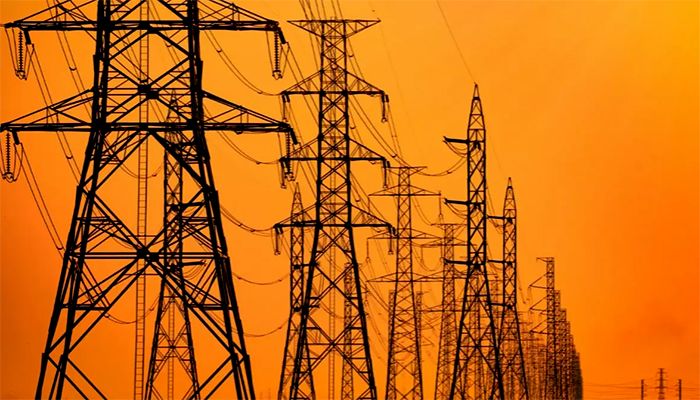
Staff Coresspondent
Publish: 04 Aug 2023, 01:12 pm

Photo: Collected
Within the current year 2023, the nation will surpass the threshold of 30,000 MW of installed capacity for electricity generation, increasing the amount of unutilized generation capacity by 50%.
This week, UNB was informed by official sources that the nation's total installed electrical generating capacity, including grid and off-grid power, is presently 28,159.
According to official data, it will be 31,273 MW this year, leaving more than 50% of it idle compared to the present need of 16,000 MW.
According to the state-owned Bangladesh Power Development Board (BPDB), the installed grid-connected power production capacity is now 24,911 MW, while the installed capacity for off-grid power generation, which includes captive and renewable energy, is 3,248 MW.
Off-grid power generation, particularly captive electricity, which is mostly utilized by industry, has not seen significant change.
According to official figures, the amount of grid electricity generated on August 1 of 2022 was 22,482 MW, and as of today, it is 24,911 MW, implying that the installed capacity has expanded by 2,429 MW in the previous 12 months.
In the next six months, 3,114 MW more installed capacity will be added to the national grid, bringing the country's total power generating capacity to 31,273 MW.
Despite a potential increase in demand of 1000 MW, the system would get 5,543 MW of additional power this year, according to a top official of the government-owned Bangladesh Power Development Board (BPDB).
“Interestingly, all the new electricity is coming from the private sector, not from the public sector plants”, said the official on condition of anonymity as he is not authorised to speak to the media on the sensitive issue.
However, sources familiar with the subject said that during this period some 400 MW of rental power plants might be retired from the grid.
Officials said many consumers might be happy with the huge growth in power generation capacity, but this will be a cause for concern for the authorities in paying the capacity charges keeping the 50 percent of the capacity idle.
“In the last fiscal year 2022-23, we had to pay Tk 26,000 crore as capacity charges and in this current fiscal the amount will go up to Tk 36,000 crore”, said a top BPDB official, adding that the amount was about Tk 21,000 crore in 2021-22. He also spoke on condition he can't be named.
Another challenge with the capacity payment is that more than 90 percent of the payment will be made in foreign currency when the country’s forex reserve has come down to $23 billion from $48 billion just one year ago.
Capacity charge is a kind of guaranteed payment under a power purchase agreement (PPA) no matter the BPDB takes power from the private producer or not.
“This fiscal year our capacity payment will increase by 80-90 percent compared to two years back”, said another BPDB official.
The official statistics revealed that new power plants which have already came to the grid or under process to be connected with grid are 1,600 MW from Adani Group’s coal-fired power plant, 620 MW from Rampal Power Plant, 1,224 MW from S Alam Group’s power plant in Bashkhali of Chattagram, 718 MW electricity from Reliance Power LNG-based Plant in Meghnaghat, 590 MW from LNG-based GE-Summit Meghnaghat-2 power plant and and 584 MW from LNG-based Unique Group’s power plant in Meghnaghat.
The official statistics also revealed that the BPDB has been in trouble with fund shortage as it’s payable outstanding bills to the private sector has now stood at Tk 25,946 crore upto April this year.
“But if the private sector’s bill for May and July is added, it may reach Tk 35,000 crore”, said a BPDB official.
Terming the situation in power sector an outcome of the wrong policy persuasion based on import-dependent fuel supply, Research Director of Centre for Policy Dialogue (CPD) Dr Khondaker Golam Moazzem said the authorities should immediately apply “force majeure” to stop capacity payment by introducing “no electricity no payment” to reduce the burden of the state-owned BPDB.
Secondly, the government has to come out of the plan to set up import-based LNG-run power plants and put priority on setting up renewable-based power plants. In this case, initiative should be taken to explore local gas.
Otherwise, the situation will go out of control, he said.
Subscribe Shampratik Deshkal Youtube Channel
Topic : Bangladesh Power Electricity CPD PWD Rampal Power Plant
© 2024 Shampratik Deshkal All Rights Reserved. Design & Developed By Root Soft Bangladesh